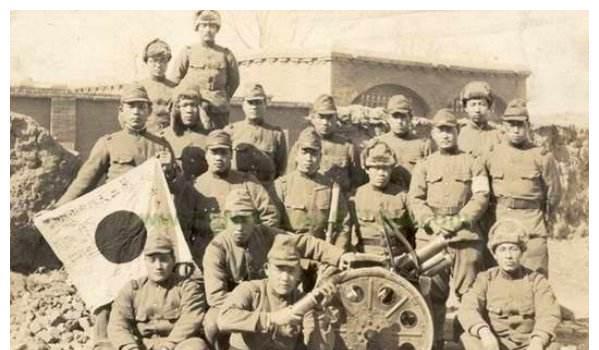During the War of Resistance Against Japanese Aggression, most of the Japanese army invading China was divided into two parts, one was the elite field troops that confronted the Nationalist army on the front line, equipped with a large number of heavy weapons and extremely strong ability to attack strong points; the other part was the public security forces that maintained stability in the occupied areas, with weak combat effectiveness and very few heavy weapons, mainly against the Eighth Route Army, the New Fourth Army, and the enemy rear troops of the Nationalist Army, such as the Loyal and Righteous Salvation Army.

Although there are many puppet armies, these puppet armies basically have no combat effectiveness, and they can still fight a dozen defensively, and it would be nonsense to expect them to attack, of course, it is not excluded that individual puppet armies have strong combat effectiveness. Due to the small number of Japanese troops, in many counties, there is often only one squadron of Japanese troops, and those remote strategic points often have only one small group, or even fewer Japanese troops stationed.
This gave the Eighth Route a great opportunity, once the Japanese troops in the remote strongholds were surrounded, if they could not send reinforcements in time, they were likely to be wiped out by the eight roads' various offensive methods, although the Eight Roads treated the Japanese prisoners with extreme humanity, but after a long period of brainwashing propaganda, the grass-roots officers and men of the Japanese Army stubbornly believed that they would undoubtedly die if they fell into the hands of the Eighth Road, and even if they survived, they would often be forced to commit suicide for the so-called honor of the unit.
However, unlike the later civil war Of the Chinese army's "friendly troops have difficulties, do not move like mountains", once the Japanese army learns that the surrounding friendly forces have been attacked, it will often go to the rescue at all costs, even if its own strength is extremely weak, the besieged Japanese army will often be morale boosted when they hear the gunshots of friendly forces, and desperately resist. According to the records of the Japanese military war, the Japanese army in a certain place in Shanxi was besieged by a large number of eight roads, and the nearest Japanese army only had a squad of more than ten people, but after receiving the rescue call, "more than a dozen people groped and packed their weapons and packed", without the slightest consideration of their own strength is not good enough at encircling the point to help the eight-way plug between the teeth.
It is precisely because of this style of desperate rescue, the Japanese troops stationed in the occupied areas rarely surrender, firmly believe that they will be rescued by friendly forces, which is also the reason why the Yamamoto special task force team in "Bright Sword" was surrounded in Ping'an County, the surrounding Japanese troops have dispatched and the eight roads have come to a scuffle, there is also a so-called "turning point in World War II" paragraph, but after all, this is a novel, the Japanese army in World War II has no concept of special operations, the so-called various types of advance teams, but also a temporary formation of detachments to carry out infiltration and reconnaissance tasks behind enemy lines. At that time, the so-called "special forces" were mainly artillery and armored troops, which was also the reason why Lin Biao's Four Fields under Lin Biao had a special column, equipped with a large number of Japanese heavy artillery and tanks, and had a strong ability to attack strong points.